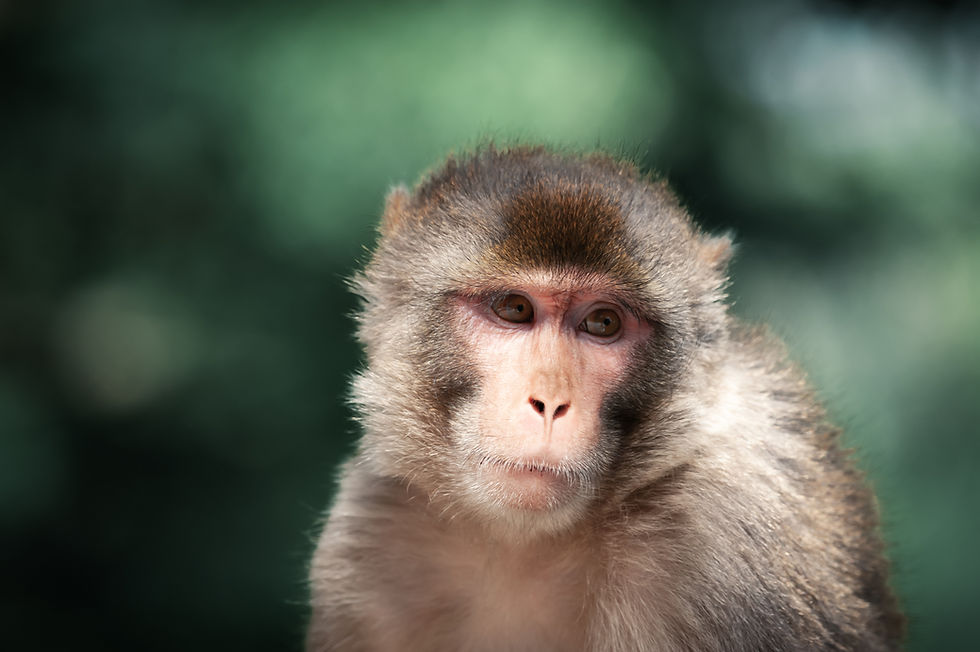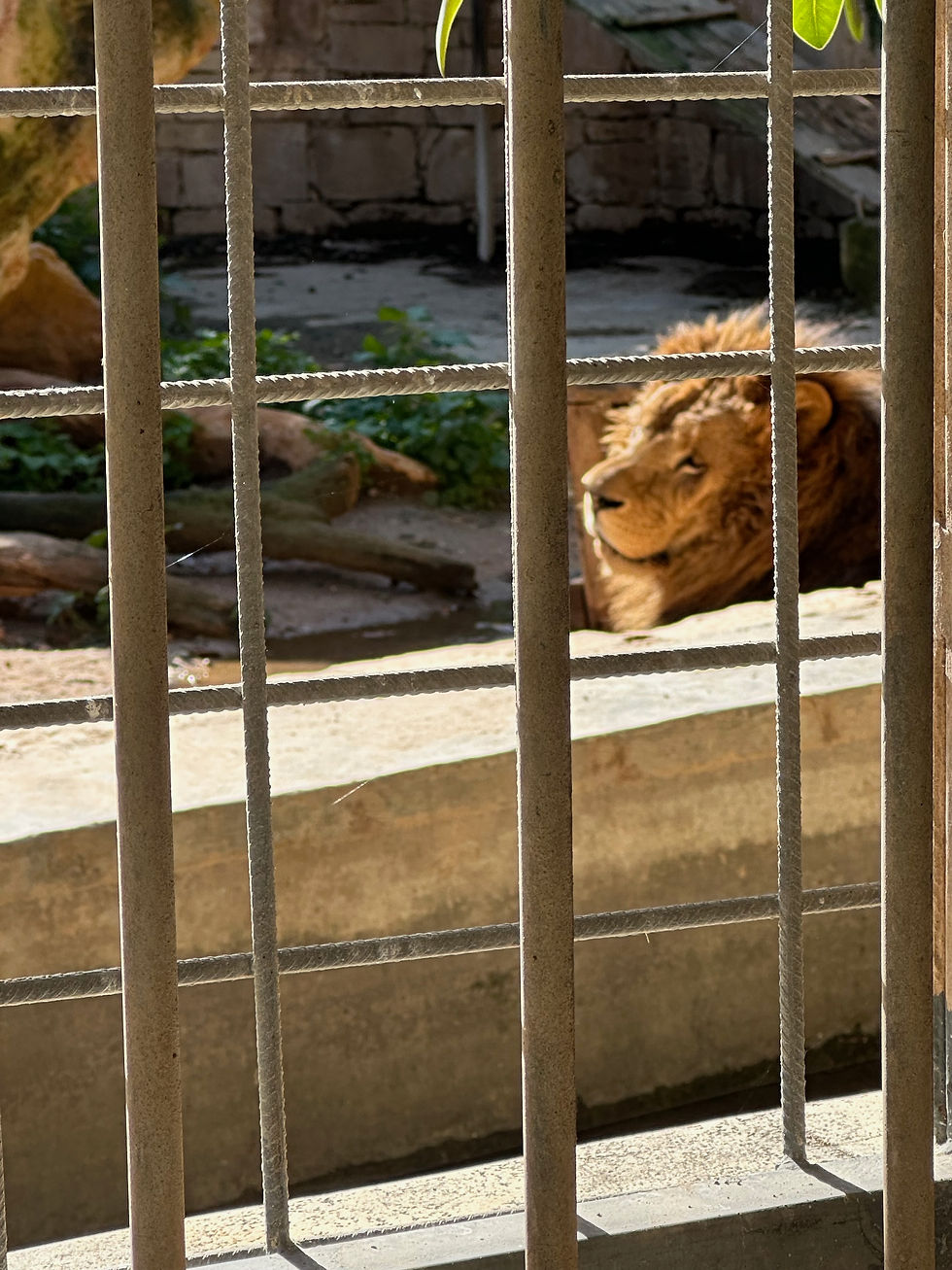Protecting Monkeys in Malta: Education, Awareness, and Action
- vuciwebsite
- Oct 6, 2025
- 3 min read
Malta has a significant population of monkeys, and today we want to talk about them, the challenges they face in captivity, and the dangers of illegal trafficking. We’ll explore how we can protect these extraordinary creatures and raise awareness about their needs.
Monkeys are not toys—they are sensitive, living beings with their own rights. Human selfishness should never harm animals who belong in their natural environment.

A Recent Case in Malta
Recently, an unusual case of a monkey sighting has drawn attention. The animal was first seen hanging in the balconies of Ħaż-Żebbuġ and, a few days later, near Ħal Qormi. To better understand the situation, we reached out to the Directorate for Animal Welfare with several questions about the precautions and procedures they take in cases like this:
Has the monkey been captured safely? If not, what steps are being taken to ensure it can be caught without injury?
Does the Directorate have trained staff and proper equipment to capture monkeys safely?
Is there a written protocol or SOP in place for such cases?
Were there any reports of escaped monkeys? If so, has a check been conducted to ensure all primates of the same species are accounted for?
With hunting season open and locals known to capture wildlife, what measures are in place to ensure the monkey’s safety?
Has the police received any reports or observations from the public regarding this case?
These questions remain unanswered at the time of writing.
The Reality of Monkeys in Captivity
Monkeys are intelligent, social primates highly adapted to life in the wild. In Malta, many live in captivity, in private homes or enclosures unsuitable for their natural behaviors. Monkeys require complex environments and social interactions—they should never be confined to small cages or single corners. While they can live 40–50 years in the wild, most fail to reach these ages due to poor conditions and illegal trafficking worldwide.
On screen: Footage comparing monkeys in the wild versus captivity, illegal trafficking clips, animations showing lifespan and mortality statistics.
How Monkeys Are Caught
Many people see monkeys as "cute pets," but in reality, they are often captured from the wild using invasive and dangerous methods that traumatize the parents and can lead to their death. Globally, illegal trafficking significantly reduces natural populations, pushing some species toward extinction.
Awareness and Education: The Role of AAP
The Animal Advocacy and Protection (AAP), a European organization, works to protect primates and exotic animals. Recently, after discussions with Vuċi għall-Annimali, AAP met with the Maltese Directorate for Animal Welfare and the Government to discuss the future of primates in Malta.
AAP was shocked by the number of chimpanzees kept in Malta and recommended that they be protected in safe environments rather than exposed to the public. They advocate for stronger laws and immediate action to prevent suffering.
In 2024, AAP rescued 82 exotic mammals from abusive situations, including primates, who are now receiving care and rehabilitation in specialized centers. A report from AAP shows that 9 out of 10 animals rescued from European circuses suffered physical or emotional trauma, with three needing euthanasia due to the severity of their condition.
AAP also promotes the “Positive List” in Europe, defining which animals can legally be kept as pets. This regulation helps control illegal trade and prevent abuse, a practice urgently needed in Malta.
The Global Context
The trafficking of monkeys is not just a local problem—it is a global issue. Thousands are taken from the wild for illegal work or as exotic pets, depleting natural populations and harming ecosystems. International agreements like CITES protect these species, and NGOs like Born Free Foundation and World Animal Protection push for stronger enforcement.
In Malta, keeping or importing monkeys is illegal. Those registered during amnesties must be secured safely and kept out of public exposure. Such measures protect both the public and the animals themselves.
Unfortunately, some local events still display young chimpanzees publicly, letting them perform tricks or be handled by people untrained in proper care. These animals are not attractions—they are intelligent beings who deserve safety and respect. Public perception often treats them like toys or babies, but this is abuse and illegal trade.
Taking Action
Education and awareness are fundamental. Everyone can help by reporting sightings and understanding that these actions are not just illegal—they are dangerous for both animals and humans. Organizations like AAP and Vuċi għall-Annimali work tirelessly to ensure that any chimpanzee or monkey at risk receives legal, safe care.
It is crucial to ask the authorities about procedures, neutering plans, and ongoing protection measures. This helps us understand the vulnerability of these species and why each case must be handled seriously.
Conclusion
Monkeys are extraordinary creatures that deserve respect and protection. Education, awareness, and compassion make a huge difference. We encourage everyone to help, understand, and safeguard these remarkable animals.
Watch the full episode about monkeys in Malta here:https://www.youtube.com/watch?v=i3JXnhwCHoo




Comments